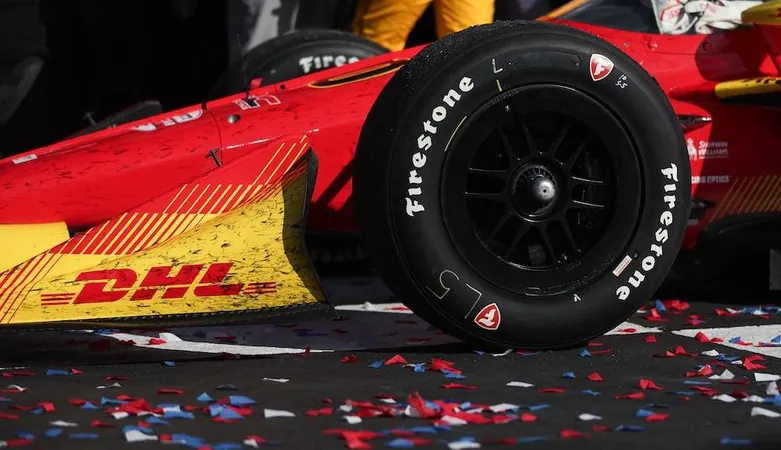
Major Change on the Horizon: IndyCar Considers Switching to Aluminum Wheels!
2025-01-02
Author: Wei
Major Change on the Horizon: IndyCar Considers Switching to Aluminum Wheels!
In a groundbreaking potential shift for the IndyCar series, the longstanding tradition of using magnesium wheels may soon come to an end. Officials are currently evaluating the feasibility of transitioning to aluminum wheels, with a target implementation date set for either the 2026 or 2027 racing seasons.
For decades, magnesium wheels have been the preferred choice in the high-speed arena of IndyCar due to their lightweight properties, which contribute to enhanced performance on the track. However, the recent scarcity of magnesium has posed significant challenges; suppliers that are capable of producing the necessary large castings for these specialized racing wheels have become increasingly limited.
In light of these developments, discussions among the NTT IndyCar Series, team managers, and engineers are underway to explore the benefits of aluminum wheels, which are not only more readily available but also easier to cast or forge in high volumes. This shift could ensure a more stable supply chain and ultimately benefit the teams in budget management.
Teams have accumulated substantial stockpiles of magnesium 'aero' wheels, specifically designed to improve aerodynamics by smoothing airflow over the car's surfaces. Many of these wheels, however, are starting to show signs of age-related corrosion, leading to increased maintenance and replacement costs.
O.Z. Racing, historically the leading supplier of magnesium wheels for IndyCar, is reportedly in discussions about manufacturing aluminum wheels of identical size to the current magnesium offerings. The goal is to create a seamless transition that retains the performance benefits teams have come to expect.
While the final specifications for the aluminum wheels remain to be determined, maintaining a similar weight to the existing magnesium wheels is a top priority. Furthermore, one of the major advantages of switching to aluminum is the potential decrease in costs. Current pricing for new magnesium wheels stands at $1,650 each (front or rear), with a complete set costing approximately $6,600. A transition to aluminum could see price reductions of around $750 or more for each set, making it a financially appealing option for the teams.
With an average of 27 full-time entries in IndyCar, teams typically stock up on 10-12 sets of wheels per car at the start of each season. As the demands of racing and the inevitability of crashes take their toll, maintaining a well-equipped inventory becomes essential; most teams aim to keep a minimum of 10 sets on hand throughout the season to ensure competitiveness.
This potential update not only showcases how IndyCar is adapting to changing materials and supply chain challenges but also prioritizes the financial health of teams amidst a competitive racing season. Will aluminum wheels revolutionize the racing experience in IndyCar? Stay tuned as we continue to update you on this developing story!

 Brasil (PT)
Brasil (PT)
 Canada (EN)
Canada (EN)
 Chile (ES)
Chile (ES)
 Česko (CS)
Česko (CS)
 대한민국 (KO)
대한민국 (KO)
 España (ES)
España (ES)
 France (FR)
France (FR)
 Hong Kong (EN)
Hong Kong (EN)
 Italia (IT)
Italia (IT)
 日本 (JA)
日本 (JA)
 Magyarország (HU)
Magyarország (HU)
 Norge (NO)
Norge (NO)
 Polska (PL)
Polska (PL)
 Schweiz (DE)
Schweiz (DE)
 Singapore (EN)
Singapore (EN)
 Sverige (SV)
Sverige (SV)
 Suomi (FI)
Suomi (FI)
 Türkiye (TR)
Türkiye (TR)
 الإمارات العربية المتحدة (AR)
الإمارات العربية المتحدة (AR)